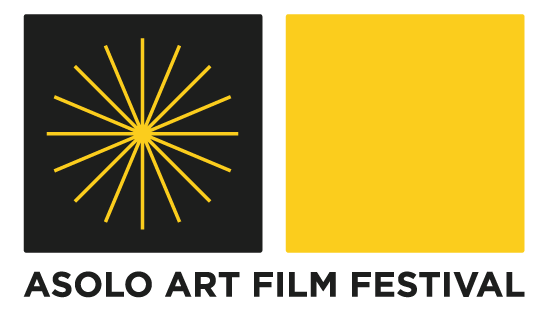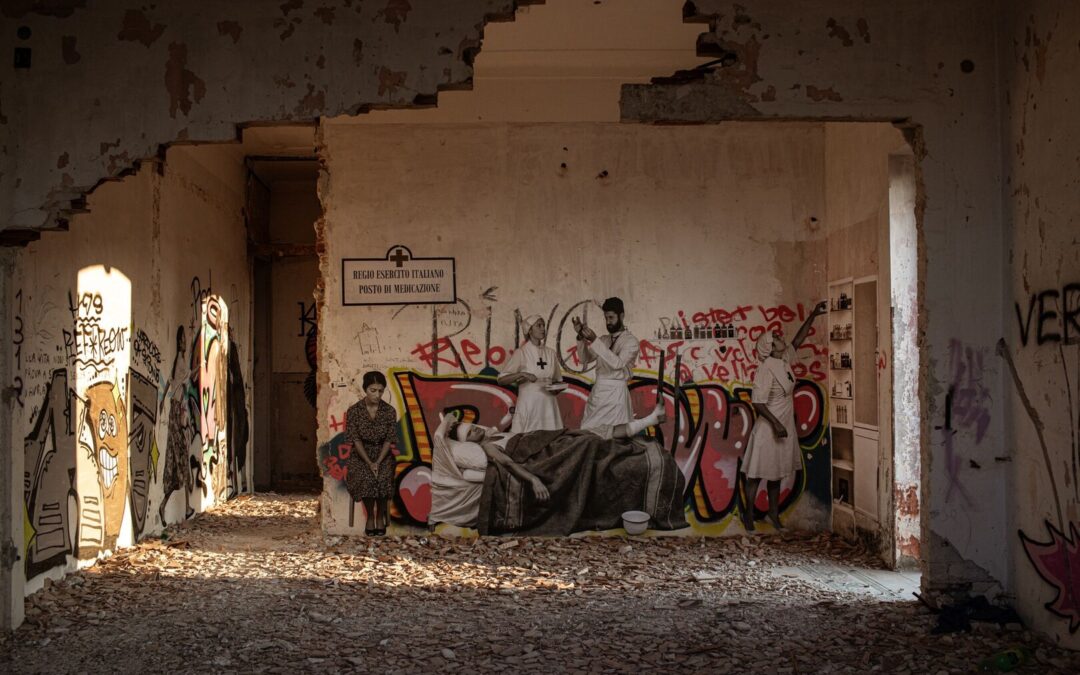Autore: Alessandro Tricarico
Tempo: 00:11:00
VILLA ROSA è un cortometraggio sperimentale che abbraccia l’arte urbana, la rovina, la fiction, il documentario, il romanzo storico, la fotografia e molto altro ancora, senza poter essere classificato in nessuna di queste categorie. Gli eventi raccontati risalgono per lo più al 1943, quando Foggia, importante snodo ferroviario e logistico, fu quasi completamente distrutta dai pesanti bombardamenti degli aerei alleati. Il bilancio stimato dei bombardamenti di quell’anno fu di 20.000 morti, circa un terzo della popolazione dell’epoca. In quegli anni si stava costruendo questa bellissima Villa (oggi abbandonata), il cui nome “Villa Rosa” è una dedica che il proprietario fece in memoria della moglie Rosa, morta prematuramente e che non vide mai la loro villa ultimata.
VILLA ROSA is an experimental short film that embraces urban art, ruin, fiction, documentary, historical novel, photography, and so much more, without being able to be categorized in any of these. The events recounted mostly from 1943, when Foggia, an important railroad and logistics hub, was almost completely destroyed by heavy bombing by Allied planes. The estimated death toll from the bombing that year was 20,000, about one-third of the population at the time. At the same time, this beautiful villa (now abandoned) was being built in those years, and the name “Villa Rosa” is a dedication that its owner made in memory of his wife named Rosa, who died prematurely and never saw their mansion ultimated.

premio: FILM D’ARTE CORTOMETRAGGIO
MOTIVAZIONE / MOTIVATION
Un lungo piano-sequenza – condotto con perfetta precisione matematico-visiva – trasforma la dimensione architettonica di una casa distrutta dalla catastrofe storica della seconda guerra mondiale in un labirinto dei ricordi e delle allusioni immaginative. La musica onirica (che ben sostiene i recitativi verbali) e il succedersi di immagini, tenute in bilico tra realtà e suggestione fantastica, danno vita un ipotetico recupero del passato come supposizione probabile più che come dato accertato, e dunque a un’idea di cinema come possibile indagine dei meccanismi con cui il pensiero rielabora la memoria. Per queste ragioni si aggiudica il Premio per il miglior film d’Arte sezione cortometraggi.
A long sequence shot – conducted with perfect mathematicalvisual precision – transforms the architectural dimension of a house destroyed by the historical catastrophe of the Second World War into a labyrinth of memories and imaginative allusions. The dreamlike music (which well supports the verbal recitatives) and the succession of images, held in balance between reality and fantastic suggestion, give life to a hypothetical recovery of the past as a probable supposition rather than as a proven fact, and therefore to an idea of cinema as a possible investigation of the mechanisms with which thought re-elaborates memory. For these reasons it won the Award for Best Art Film in the short film section.a strong emotional involvement with the viewer. For these reasons and for having reminded us of the universality of human rights, he was awarded the Film sull’Arte prize in the short film category.
Sandro Sproccati
